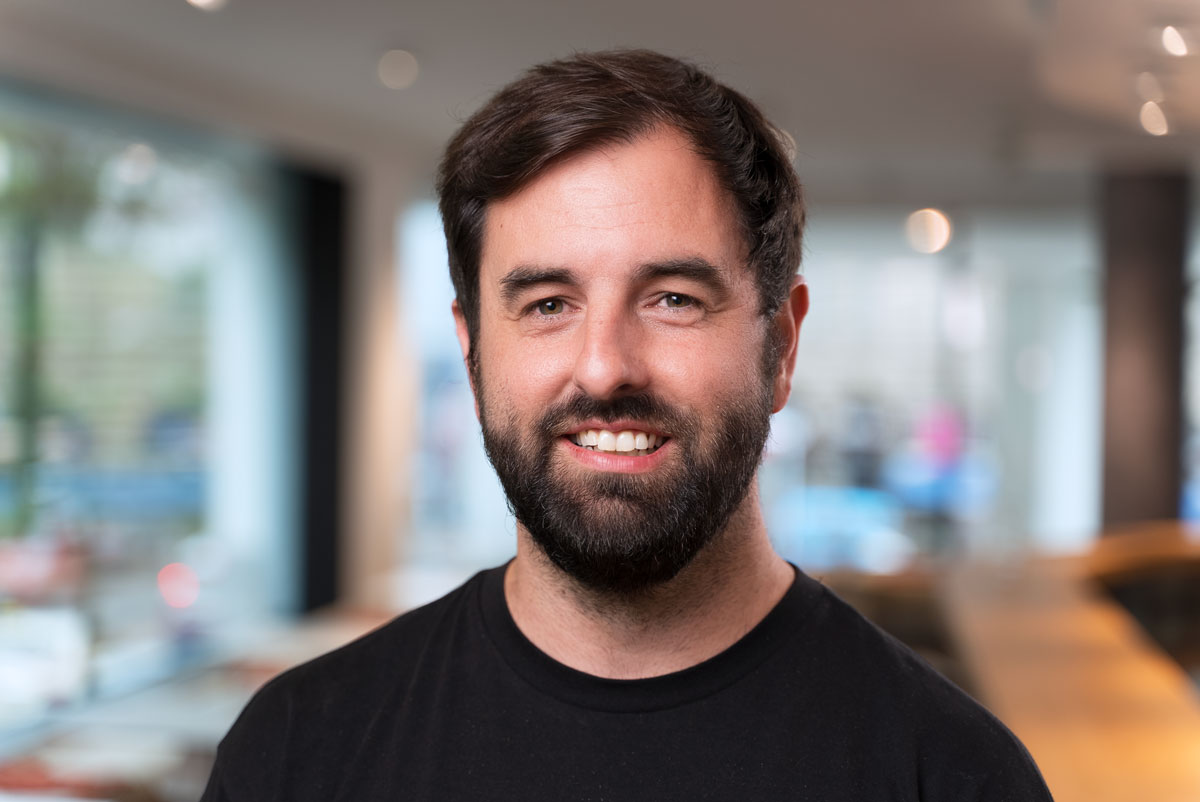The World’s Most Ethical and Trusted Professions
A series of reports examined the trust and ethical standards associated with different professions around the world.
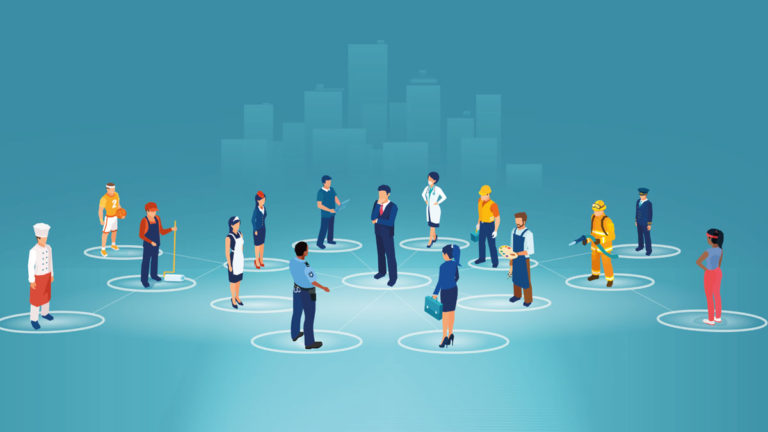
Whether it’s arguing with a cop over a speeding ticket, questioning the quality of the repair job at a local garage or calling out a politician on blatant lies, mistrust of different professions is a universal facet of everyday life. A lack of trust in different occupations has always had consequences and there is no better example than the Covid-19 pandemic when scepticism about science saw significant swathes of different populations refuse to get vaccinated. For companies, the stakes have arguably never been higher than they are today and many have realised that success can no longer be achieved without fostering a culture of integrity and transparency that builds trust. Bearing that in mind, what professions rank highest and lowest among the public in terms of trust and ethical standards?
The most and least trusted professions globally
When Ipsos released the latest version of their Global Trustworthiness Index in October 2021, doctors emerged as the most trusted profession among nearly 20,000 respondents across 28 different countries. 64% of people rated doctors as trustworthy on average, a figure that climbed to more than 70% in Canada, the United Kingdom and the Netherlands. Interestingly, a lack of faith in science and the Covid-19 vaccine in some parts of the world failed to prevent scientists from coming second with a global average of 61%. Teachers rounded off the top-three with 55%.
There has been no shortage of highly divisive political events in recent years from Brexit to the January 06 insurrection and it comes as little surprise that politicians are rock bottom of the trust league with just 10% of the global public having faith in them. Similarly, people are highly sceptical about government ministers with just 14% of respondents trusting them. The share of people who said they distrust government ministers and politicians in general stood at 54% and 63%, respectively.
Away from the political spectrum, advertising executives were given low marks for trust at just 15%. Journalists, bankers and business leaders also struggled at the wrong end of the ranking with less than a quarter of people saying they could trust these professions.
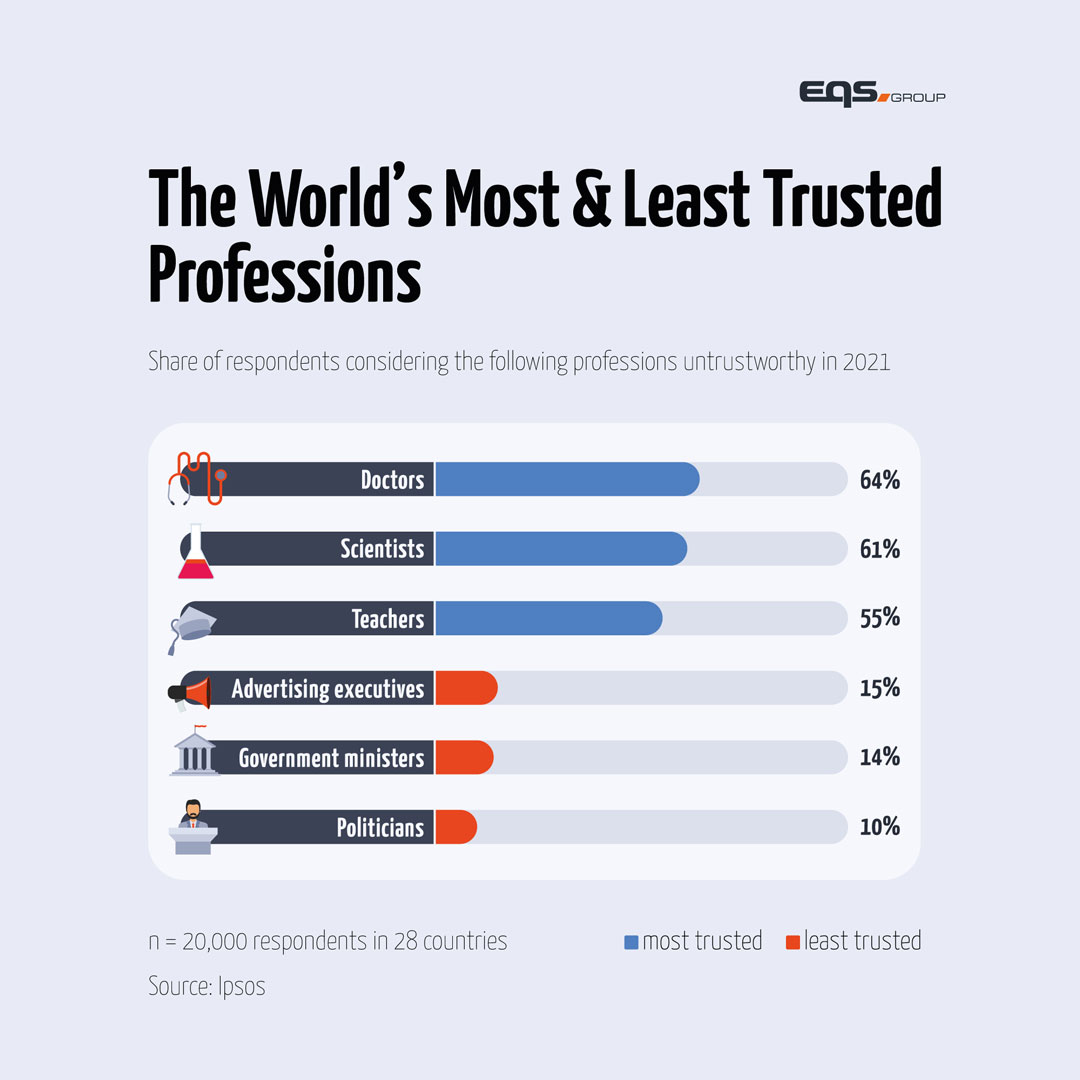
Spotlight on the UK and Ireland
Ipsos also published two separate editions of their Veracity Index examining the most trusted professions in the UK and Ireland. Most recently released in December 2021, the survey has been running in the UK since 1983 and it specifically asks members of the public about whether they can trust certain occupations to tell the truth. Nurses have been the highest scoring profession since 2016 when they were first included in the survey and they came first once again this time around, trusted by 94% of the public. Librarians, a new entrant to the survey, came second with 93% while doctors were in third place with 91%.
The police were outside the top-10 in the survey, and they actually saw their trust levels fall by eight percentage points. Despite that, Ipsos pointed out that their 63% score remains little different to the average level of trust recorded in the police since 1983. Another interesting trend was a rise in trust in journalists that brought the profession back to its previous highest score. Nevertheless, journalists (28%) remain among the country’s five least-trusted professions along with business leaders (31%), government ministers (19%), politicians (19%) and advertising executives (16%).
Across the Irish Sea, Ireland’s version of the Veracity Index has been running since 2005 and the results are broadly similar to the UK. With 96%, nurses also came out on top for trust in the 2022 edition of the survey, ahead of pharmacists’ 93% and doctors’ 91%. While politicians did not fare quite as badly as in the Global Trustworthiness Index and the UK survey, they still performed poorly with 36% for government ministers and 27% for politicians landing both professions in the bottom five. Advertising executives came second last with only 24% of the Irish public trusting them while the least trusted profession was named as the social media influencer with trust levels sinking to just 10%. Key trends in Ireland in 2022 include trust in An Garda Síochána (Ireland’s police) falling 6 points but remaining strong at 77% while trust in bankers climbed 9 points to 43%.
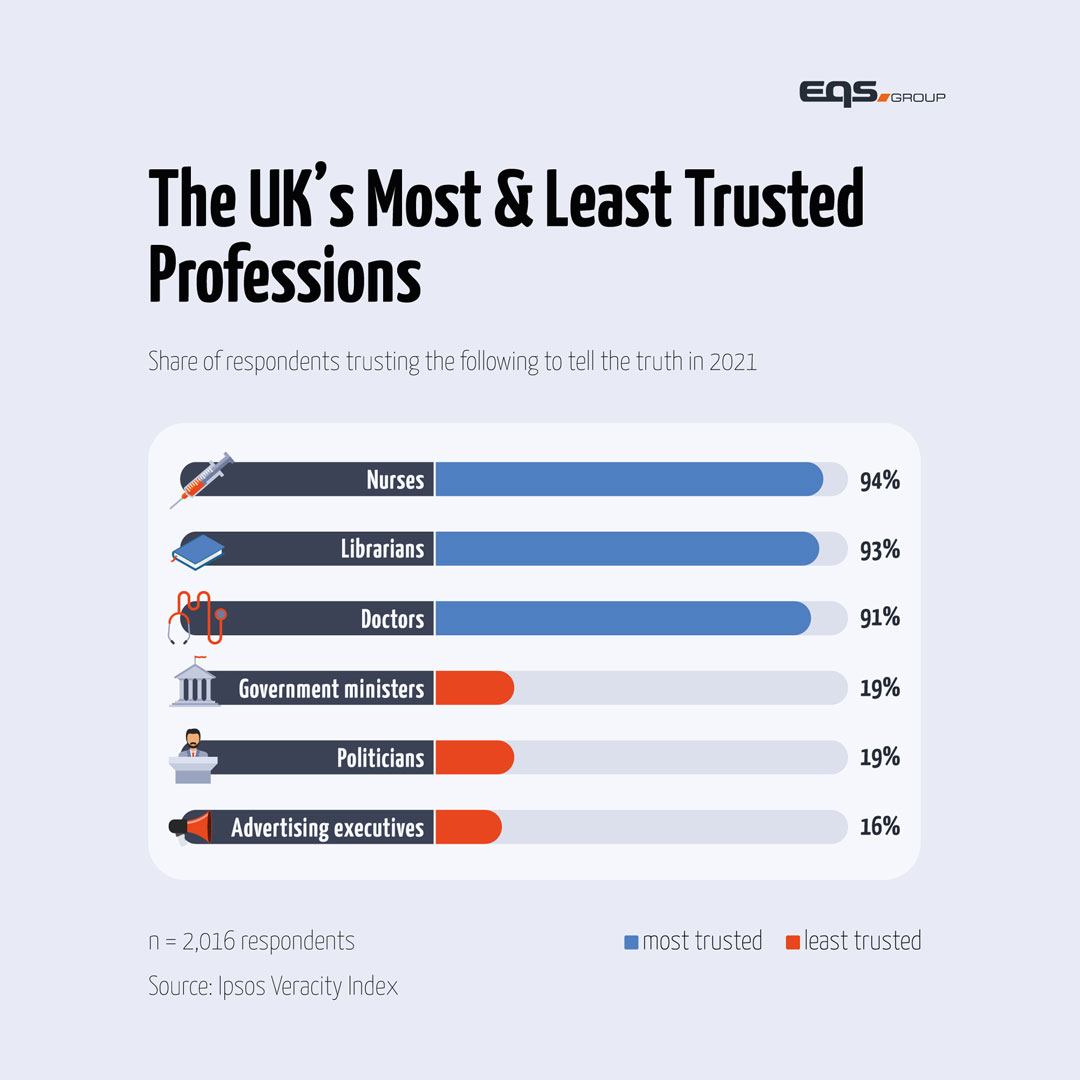
Honest and ethical professions in the United States
In the United States, Gallup has released an annual rating of the honesty and ethics of various professions since 1976. Reflecting the results of Ipsos’ findings, Gallup named nurses as America’s most ethical and honest profession for the 20th straight year in January 2022. 81% of the US public rated the honesty and ethical standards of nurses as either high or very high, a significant distance ahead of second-placed doctors’ 67%. Grade-school teachers came in third place with 64% while pharmacists (63%) and military officers (61%) completed the top five.
Despite recent controversies about excess force and the militarisation of US policing, the profession still performed well in Gallup’s survey with just over half of Americans giving it a high score for honesty and ethics. As was the case in Ipsos’ research, politicians are also counted among the least trusted professions in America. Members of Congress came third last in the ranking with just 9%, though that was still ahead of car salespeople with 8% and lobbyists with 5%.
One key trend pointed out by Gallup was a return to normality for medical professions that experienced an image surge during the pandemic. Nurses, medical doctors and pharmacists all enjoyed boosted ratings thanks to their service to the public during the first year of Covid-19, but they have now essentially returned to pre-pandemic levels of normality.
Like most public surveys in the US these days, Gallup’s research was characterised by a deep bipartisan divide. For example, Republicans tended to give the police higher marks for honesty and ethics than Democrats while they also had more positive opinions of the military and clergy. Democrats on the other hand gave higher ratings to newspaper reporters, medical doctors, grade-school teachers and members of Congress than Republicans.
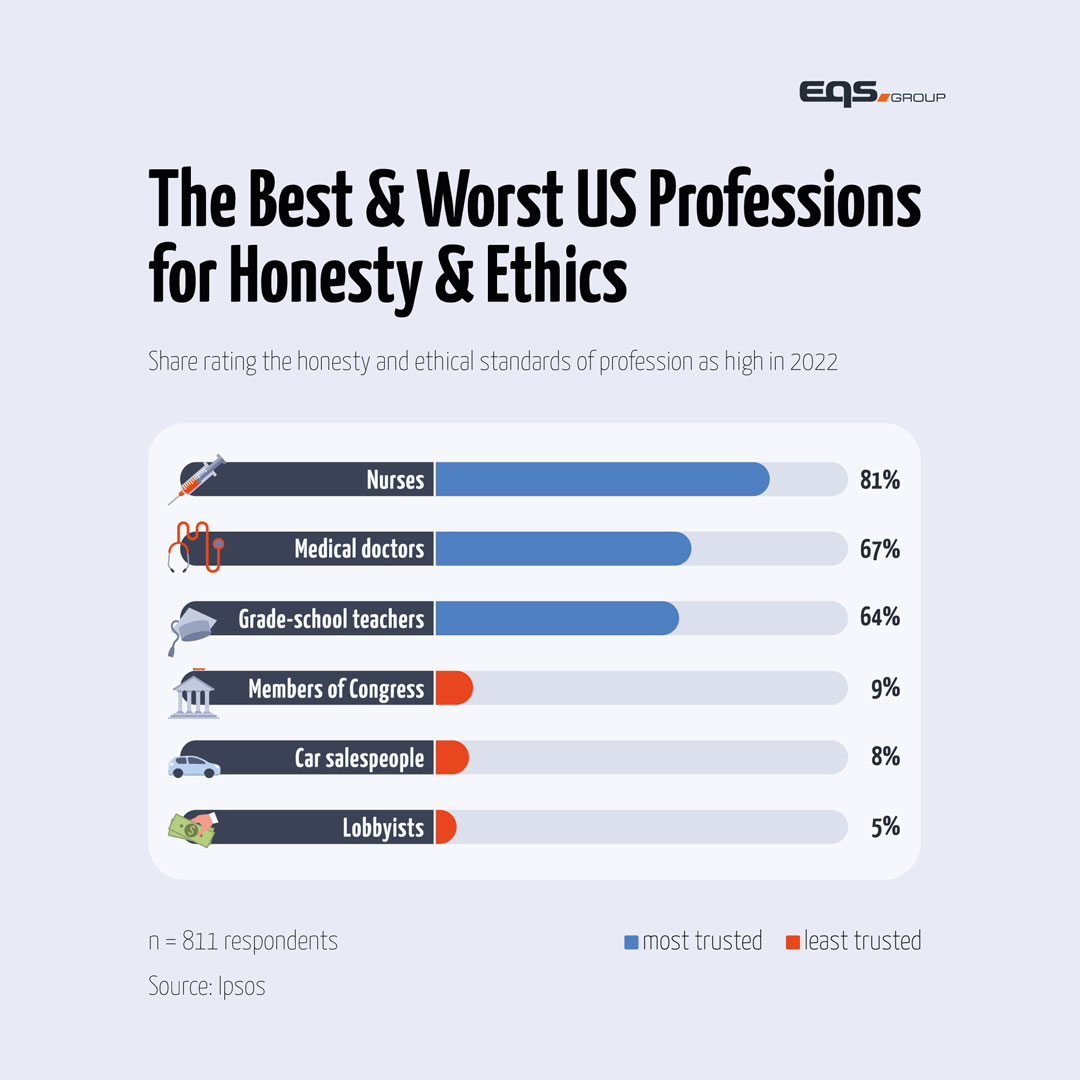
The world’s most trusted sector in detail
Whether it is nurses, doctors or pharmacists, medical occupations tend to reign supreme as the most trusted professions across the world, but why? While trust is an important aspect of a rapport between a business and a customer, it is critical when it comes to the relationship between patients and medical professionals. As well as giving medical relationships intrinsic value, high trust levels might prove the difference in a patient seeking care, sharing sensitive personal information or proceeding with a treatment recommendation. A relationship built on trust is also essential because patients are inherently vulnerable to suffering.
In the UK, whistleblower Peter Duffy was acutely aware of the importance of mutual trust in healthcare and that’s why he put his career on the line to speak out about serious wrongdoing at his hospital. As Peter explained in his recent interview with EQS Group, hospitals are dangerous places and modern treatments are incredibly complex, meaning mistakes can occur. Even when things go wrong, trust can be preserved through accountability. Ultimately, speaking up and admitting to errors helps medical professionals improve the way they work and has proven fundamental in protecting patients’ lives.
Conclusion
While mutual trust is nothing new in medicine, a lack of morals in many aspects of modern politics is also common knowledge. Indeed, some critics have argued that ethics has no place in politics whatsoever and that politicians can only remain effective if they are not bound by moral rules. It is therefore unsurprising that politicians were among the worst-performing professions in the above studies and that is not expected to change any time soon. Companies and the professions they employ do have a chance, however. With scrutiny growing and tougher questions being asked of organisations, the implementation of an open culture of transparency and integrity is the best way to build and maintain trust with both investors and the public alike.

Key principles of establishing an effective ABC programme
